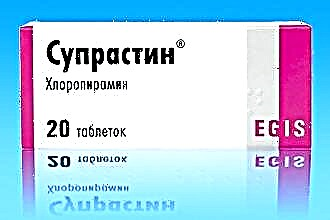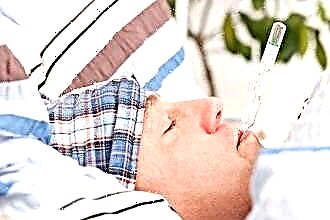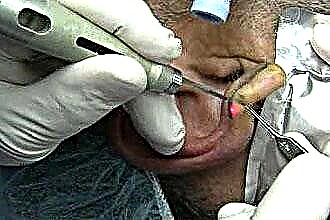The chronic form of the common cold is characterized by the presence of symptoms of the disease for a long period of time. This is due to several reasons: negligence in the treatment of acute rhinitis, the continuing influence of a provoking factor or severe immunodeficiency. Before taking on the treatment of rhinitis, it is necessary to consult a doctor, since it is quite difficult to cure a chronic rhinitis.
The key to successful treatment is a correctly identified cause of the disease and professionally selected drug therapy. Note that folk remedies are used only as an auxiliary method of therapy. Honey, aloe and herbs will not be able to relieve a person from the chronic course of the disease.
First, you need to understand the cause of the chronicity of the inflammatory process in the nasopharyngeal mucosa. This could be:
- infectious rhinitis (bacterial form). It develops as a result of improper treatment of the disease with a primary lesion of the mucous membrane by pathogenic microbes. As a result, the pathogens are in the nasopharynx in a "semi-active" state. As soon as a person is overcooled, or the immune defense weakens, an exacerbation of rhinitis is observed with the appearance of severe symptoms;
- Allergic rhinitis is caused by a person's constant contact with an allergen. For example, seasonal rhinitis may be troubling during the flowering period. If, however, animal hair or household chemicals act as a provoking factor, symptoms of an allergic rhinitis can be noted all year round;
- vasomotor rhinitis in adults can be caused by poor environmental conditions, diseases of the nervous system or occupational hazards;
- rhinitis as a result of prolonged use of nasal drops with a vasoconstrictor effect. As a result of using these nasal drops over the course of several years, addiction is developed. To achieve the effect of restoring nasal breathing, more frequent nasal instillation with a large volume of a vasoconstrictor drug is required.
Given the variety of causes, treatment of chronic rhinitis in adults should be individualized. If the cause of the chronicity of the disease is a deformed nasal septum, no medication can completely eliminate the symptoms. The only way out is surgery.
Also, antibacterial drugs for an allergic origin of rhinitis will be completely ineffective. In addition, prolonged use of an antimicrobial nasal spray is fraught with microflora disruption and activation of fungal infection.
Visit to the doctor
 Only an otolaryngologist knows how to treat a chronic rhinitis. A visit to the doctor is a must if you want to get rid of snot for a long time. At the reception, the ENT doctor asks the symptoms of the disease, the features of their appearance and progression. To establish the cause of the disease, a life history is analyzed. For further examination, the following may be prescribed:
Only an otolaryngologist knows how to treat a chronic rhinitis. A visit to the doctor is a must if you want to get rid of snot for a long time. At the reception, the ENT doctor asks the symptoms of the disease, the features of their appearance and progression. To establish the cause of the disease, a life history is analyzed. For further examination, the following may be prescribed:
- a blood test (to identify infectious pathogens), including a study of the immunological status;
- analysis of a smear from the nasopharynx (microscopic examination, inoculation of the material on nutrient media). Having determined the type of pathogenic microorganisms, their resistance to antibacterial agents is established;
- X-ray of the skull - to detect inflammation of the paranasal sinuses, anomalies in the structure of the nose or a deviated septum;
- rhinoscopy;
- allergy tests;
- analysis of working conditions.
In some cases, treatment of chronic rhinitis may require the consultation of a neurologist, endocrinologist, or maxillofacial surgeon (if the cause of the disease is trauma).
Rinsing the nose
The effect of drugs will be more powerful if used after cleansing the nasopharyngeal mucosa.
The procedure for washing the nasopharynx is carried out for any form of the disease. This allows:
- moisturize the nasal mucosa;
- prevent damage to the mucous membrane due to the action of irritating factors;
- clean the surface of dust and mucus, in which microbial toxins can accumulate;
- normalize the work of the cilia of the epithelium, which makes it possible to timely cleanse the mucous membrane from various contaminants;
- improve the outflow of mucus from the paranasal sinuses in chronic sinusitis.
Washing can be carried out using special devices or handy tools (syringes). The following solutions are used for washing:
- Aqua Maris, Humer, Dolphin;
- saline;
- still alkaline water;
- saline solution. To prepare the solution, use food or sea salt. Dissolve 5 g of salt in warm water with a volume of 240 ml. If indicated, you can add a drop of iodine;
- herbal decoctions of chamomile, oak bark, eucalyptus or sage. It is enough to pour boiling water (220 ml) over 15 g of grass, wait 20 minutes and start rinsing. You can also add aloe juice (30 ml);
- 5 garlic cloves need to be peeled, chopped, filled with boiling water (800 ml) and left for half an hour under a closed lid. Before use, you must add aloe 1: 2 and rinse the nasopharynx twice a day;
- freshly squeezed beet juice with a volume of 20 ml should be diluted in 240 ml of water and add 2 g of salt.
What will help with chronic rhinitis?
Treatment of chronic rhinitis in adults should include symptomatic and pathogenetic therapy. This means that all drugs used are prescribed to reduce the clinical manifestations of the disease, eliminate the cause and inhibit the mechanism of rhinitis development.
To get a quick effect and temporarily restore nasal breathing, nasal drops with a vasoconstrictor effect are used. The duration of the effect depends on the composition of the drug and can be from 5 to 12 hours. Vasoconstrictor medications are used only for exacerbation of the disease, because during the period of remission, rhinorrhea does not bother so often.
The action of drugs is based on their ability to reduce the diameter of blood vessels at the site of their injection, as a result of which the swelling of the mucous membrane and nasal congestion are reduced. Such drugs include Xymelin, Tizin, Lazorin, Nazivin and Naftizin.
With regard to the treatment of certain forms of the disease, an individual approach is required. If allergic chronic rhinitis is diagnosed, treatment should include:
- elimination of contact with the allergen;
- using a nasal spray with an antihistamine effect, such as Fenistil;
- the use of hormonal agents in the form of nasal drops (Beconase, Fluticasone);
- taking drugs, the action of which is to stabilize the membranes of mast cells (Infiral, Kromoglin);
- the appointment of systemic antihistamines, for example, Zodak, Erius, Diazolin.
This is a treatment for allergic rhinorrhea, which is prescribed for hay fever. The symptoms are not completely eliminated, but the condition improves significantly.
Vasoconstrictor drugs and systemic corticosteroids are used only in severe disease. They are powerful drugs, after which conventional antihistamines will not be able to cure.
Hormonal medications quickly become addictive.
Infectious mucus is treated with topical and systemic antimicrobial medicines. For this, the following may be assigned:
- antibacterial agents, for example, Amoxiclav, Erythromycin;
- antiseptic solutions for washing the nasopharynx and pharynx (Furacilin, Miramistin, Chlorhexidine).
You cannot stop taking antibiotics on your own, otherwise the infection will not be completely removed from the inflammatory focus.
It is quite difficult to establish the causes and prescribe treatment for vasomotor rhinitis, because this form of the disease has many predisposing factors.
How to treat chronic rhinitis caused by decompensation of diseases of internal organs? Several specialists are involved in the treatment, medicines are prescribed to treat the underlying disease and eliminate the symptoms of a cold.
Chronic rhinitis of pregnant women should be considered separately. The appearance of nasal congestion and rhinorrhea is caused by hormonal fluctuations in the woman's body. Often, a runny nose appears in the second trimester and can persist until delivery and in the first months of the postpartum period. Particular attention is paid to the treatment of this type of rhinitis, because many medicines are prohibited for use during gestation.
In treatment, nasal rinses with saline solutions are used. Of the nasal forms of drugs, Pinosol or Delufen are allowed for pregnant women. The duration of the course should not exceed 5 days. Hormonal medications are not prescribed.
Homeopathic remedies
 How to cure chronic rhinitis with homeopathic medicines? The use of drugs in this group is safer than other groups of medicines. Unlike vasoconstrictor and hormonal agents, homeopathy does not cause side effects and can be prescribed for a long therapeutic course.
How to cure chronic rhinitis with homeopathic medicines? The use of drugs in this group is safer than other groups of medicines. Unlike vasoconstrictor and hormonal agents, homeopathy does not cause side effects and can be prescribed for a long therapeutic course.
One of the representatives of the homeopathic group of drugs is Delufen. It is widely used in ENT practice, comes in the form of a spray, has no color and aroma.
The medicine has antiallergic, anti-inflammatory effect, protects the mucous membrane from irritation and accelerates regenerative processes. Delufen is prescribed for infectious, allergic or vasomotor rhinitis:
- for allergic rhinitis, the drug eliminates itching, nasal congestion and rhinorrhea. Acts on the mucous membrane of the nasopharynx, reducing its sensitivity to irritants and allergens;
- anti-inflammatory effect allows you to reduce the severity of inflammation, edema, mucus production and restore nasal breathing;
- old atrophic rhinitis is treated thanks to Delufen's ability to normalize nutrition and the functioning of the cells of the nasopharyngeal mucosa. Dryness decreases, regeneration is activated, as a result of which dry crusts do not form and difficulty breathing is not observed;
- immunomodulatory effect makes it possible to normalize the flora of the nasopharynx and enhance local immune protection.
It is undesirable to use Delufen for severe thyroid dysfunction and individual intolerance to the components. Chronic rhinitis in an adult is treated for 2-4 weeks, but the duration of the therapeutic course can last up to two months.
To clear up a chronic rhinitis, treatment should include immunotherapy. Coping with the disease will be quite difficult if a person has a weakened immune system. To strengthen it, you need healthy food, taking vitamins and an adequate drinking regime. You need to drink 1.5-2 liters of liquid daily. This will reduce the viscosity of mucus, facilitate its excretion, reduce intoxication and strengthen the immune system. Recommended cranberry juice, tea with lemon, raspberries or herbal infusions. Only an integrated approach and medical supervision will completely cure chronic rhinitis.



